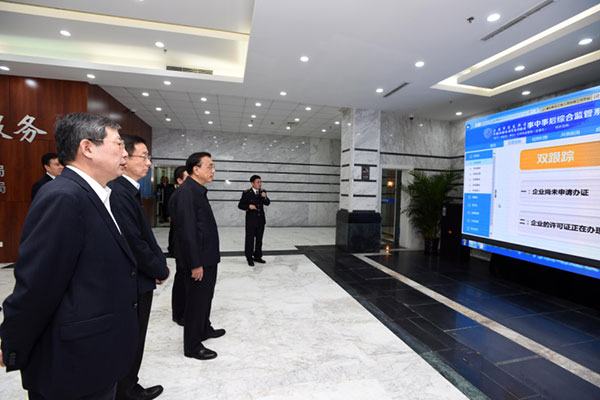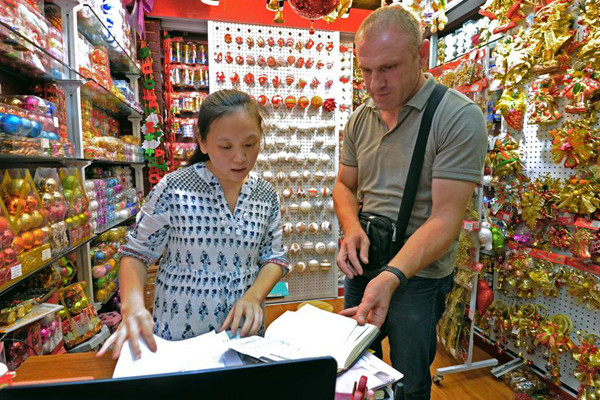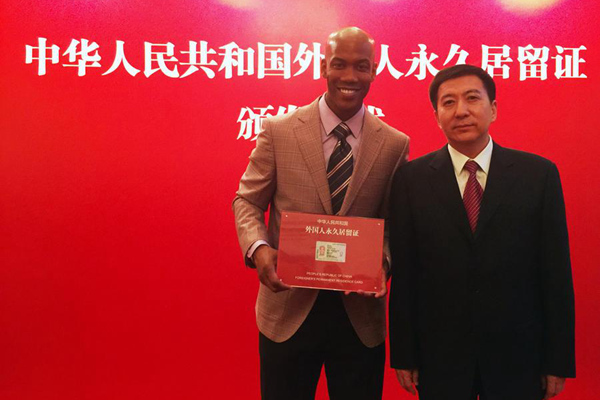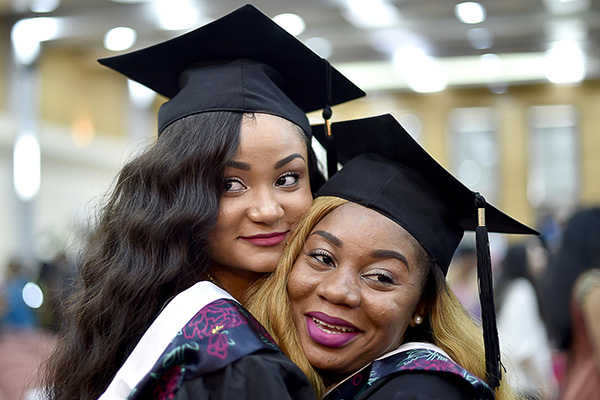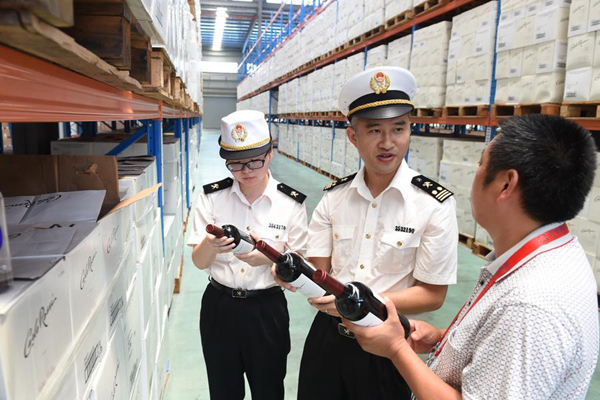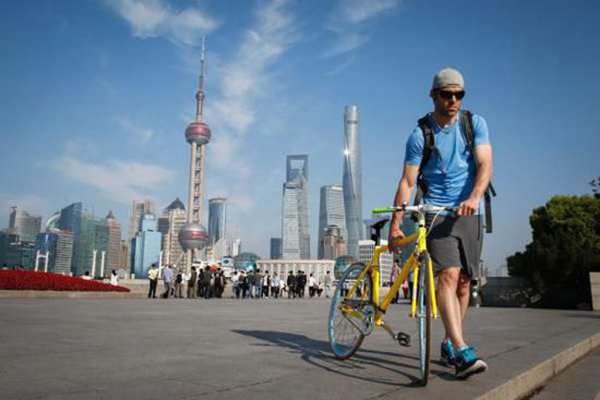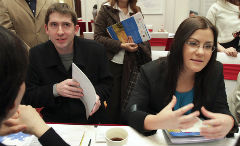Policies concerning foreigners in 2016
2017-01-21
english.gov.cn
The Chinese government issued several policies in 2016 that concern foreigners living in China or dealing with Chinese agencies. The policies cover many fields, such as foreign investment, application for residence in China and foreign trade.
Cut paperwork for foreign investors
 Premier Li Keqiang takes an inspection tour of the Administration Bureau for Shanghai Free Trade Zone on Nov 21, 2016.
Premier Li Keqiang takes an inspection tour of the Administration Bureau for Shanghai Free Trade Zone on Nov 21, 2016.
As long as their business is not on the "negative list", they will only need to submit business plans to local regulators for the record before entering the Chinese market.
First tested in the Shanghai pilot free trade zone in October 2013, the policy is expected to cut 95 percent of paperwork for foreign investors and cut the registration time to three working days, from more than 20 days before.
The policy was authorized by the 12th People's Congress at the 22nd meeting of the standing committee, which passed amendments to four laws concerning foreign investment.
In addition, foreign investors are asked to submit authentic information, or risk punishment, according to Tong Daochi, an official from the Ministry of Commerce.
Details:>>China paves way for more foreign investment via simplified procedures
Ease market access to foreign investment
More market access would be eased for foreign investment in the service, manufacturing and mining sectors, according to the State Council executive meeting presided over by Premier Li on Dec 28, 2016.In the service sector, foreign capital will have access to financing industries — including banks, securities, funds, futures and commercial insurance — and professional services such as auditing and architecture.
Restrictions in industries such as rail transportation equipment, motorcycles, fuel ethanol and oil processing will also be lifted, as well as energy, water conservation, environmental protection and urban development, by way of franchising.
The Foreign Investment Industrial Guidance Catalog will be revised to encourage investment in advanced manufacturing, joining China's national strategies such as the ”Made-in-China 2025” initiative.
Foreign-funded enterprises (FFE) will be exempt from minimum registered capital requirements.
Details:>> Premier vows easier access for foreign investment
Ease permanent residence application for foreigners
 Stephon Marbury, a former NBA star, takes a photo with Zhang Jiandong, deputy mayor of Beijing, after being issued a Foreigner's Permanent Residence Card, on April 18, 2016. Marbury plays for the Beijing Ducks of the Chinese Basketball Association (CBA).[Photo/Xinhua]
Stephon Marbury, a former NBA star, takes a photo with Zhang Jiandong, deputy mayor of Beijing, after being issued a Foreigner's Permanent Residence Card, on April 18, 2016. Marbury plays for the Beijing Ducks of the Chinese Basketball Association (CBA).[Photo/Xinhua]
More foreigners in different industries in China would be eligible to apply for permanent residence permits, or green cards, and the process would be simplified, according to a guideline issued jointly by the Central Committee of CPC and the State Council on Feb 19.
It said the guideline would optimize application requirements, streamline procedures and improve related public services to enhance China’s attractiveness to global talent.
"More market factors would be taken into consideration when reviewing the candidates for green cards, such as salary, taxation and social credit. In the past, evaluations were based mainly on government needs,” said Gao Xiang, a spokesman for the State Administration of Foreign Experts Affairs.
Details:>> Flexible new guidelines issued on green cards
Standard work permits for foreigners
 Foreign students hug each other at a graduation ceremony at Tianjin Medical University in July. More than 160 foreign students from 19 countries graduated from the university last year.[Photo/Xinhua]
Foreign students hug each other at a graduation ceremony at Tianjin Medical University in July. More than 160 foreign students from 19 countries graduated from the university last year.[Photo/Xinhua]
The reform will combine China’s two current foreigner work permits into one.
A trial is under way in several regions such as Beijing, Tianjin and Shandong province. The policy will be rolled out nationwide in April 2017.
"The unification eliminates the replicated application hurdle and improves communication, in order to better serve overseas talent coming to work in China,” Zhang Jianguo, head of the administration, said on Sept 8 at a seminar in Tianjin.
Under the current system, foreigners can apply for either of two types of work permits-an employment license for foreigners issued by the Ministry of Human Resources and Social Security, or a foreign expert work permit provided by the State Administration of Foreign Experts Affairs.
Details:>> Unified work permit for foreigners on way
Build fair market for foreign companies
The Chinese government issued several measures to build a fair market for foreign companies at the State Council executive meeting on Dec 28, 2016.
Authorities were urged to treat foreign companies the same as domestic ones in terms of license applications and government supervision.
Foreign companies would also get equal access to China’s national standards and to government procurement.
They would also be encouraged to expand financing channels by issuing bonds and IPOs in China’s security markets.
Intellectual property right of foreign companies would also be better protected, the State Council said.
Details:>> China lays out plan to boost foreign investment
Simplify clearance procedures
 Customs officials in Putian, East China's Fujian province, talk with employees of Tenwow Group in a bonded warehouse, July 25, 2016.[Photo/Xinhua]
Customs officials in Putian, East China's Fujian province, talk with employees of Tenwow Group in a bonded warehouse, July 25, 2016.[Photo/Xinhua]
With the single window, domestic and foreign trade companies are able to clear customs at just one department.
In addition, China was promoting mutual recognition of an authorized economic operator (AEO) system with other countries. Foreign companies that are recognized by AEO would enjoy favorable treatment by customs in China. And Chinese companies that have good credit will enjoy the same facilitated customs clearance in partner countries, which will help them abide by laws voluntarily.
AEO is a system under the framework of the World Customs Organization. China has collaborated on this system with 31 countries and regions, including Singapore, Hong Kong and the EU.
First tested in the pilot free trade zones, the measures are to be promoted nationwide, according to a circular issued by the State Council executive meeting on Nov 10, 2016.
Details:>> Excerpts from policy briefing on Jan 6
Tax-free donations to Chinese charity
The goods that foreigners donate to Chinese charity have been free from tax since April 1, 2016, according to a document issued jointly by the Ministry of Finance, State Administration of Taxation and General Administration of Customs in January 2016.
Customs duty and value-added tax for imports will both be exempted for donations.
Organizations that are eligible to receive donations include authorities and some leading NGOs.
No restrictions on foreign companies' lawful capital outflow
Foreign companies in China are free to send their lawful capital out, according to a statement issued by the State Administration of Foreign Exchange on Dec 9, 2016.
The normal international transfer of profits, dividends and goods would not be restricted.
Recent measures taken by the Chinese government to curb capital outflow are against short-term speculative capital flow, not the normal business of foreign companies, Deputy Minister of Commerce Wang Shouwen said on Jan 6, 2017.
Qualified international employees can open FT accounts in Shanghai
China’s central bank will allow qualified international employees working in China (Shanghai) Pilot Free Trade Zone to open overseas personal free trade accounts, as part of a series of reforms encouraging innovation and cross-border investment.The measure, announced at a news conference in Shanghai on Nov 23 by the People’s Bank of China, is the first of its kind allowing international workers in the city to have easy and direct financing services through bank accounts at local lenders.
After the measure became effective on Nov 23, qualified foreigners could access cross-border financial services and do not have to use overseas services as they did before.
The central bank said the move was aimed at encouraging innovation and cross-border investment and trade, in a bid to make trade more active, and extend the functions of free trade accounts from corporate financing to personal financing.
Details:>> New policy to benefit investment
Tax refunds to lure visitors
 A scenic shot of Ghost city in Hami, Northwest China's Xinjiang Uygur autonomous region, Dec 23, 2016.[Photo/Xinhua]
A scenic shot of Ghost city in Hami, Northwest China's Xinjiang Uygur autonomous region, Dec 23, 2016.[Photo/Xinhua]
The refund policy began on Jan 1 2017, according to the Xinjiang regional office of the State Administration of Taxation.
Fan Bingwu, head of the export and import tax management division at the office, said the new policy will increase the popularity of Xinjiang as a tourist destination.
More than a dozen provincial areas have enacted tax refund policies for overseas tourists.
According to the new policy, foreigners and residents of the Hong Kong and Macao special administrative regions and Taiwan, who have stayed in China for 183 days or less, can also enjoy the refund.
Tourists must have spent at least 500 yuan ($75) at a duty-free shop, and the purchase must not have been used or consumed. They must leave the country within 90 days after the purchase.
Overseas tourists can apply for a refund of 11 percent of the total of their purchases at duty-free shops. They can apply at customs before the refund is completed by a tax refund agency, which may charge a commission.
Details:>> Refund of taxes to lure visitors
